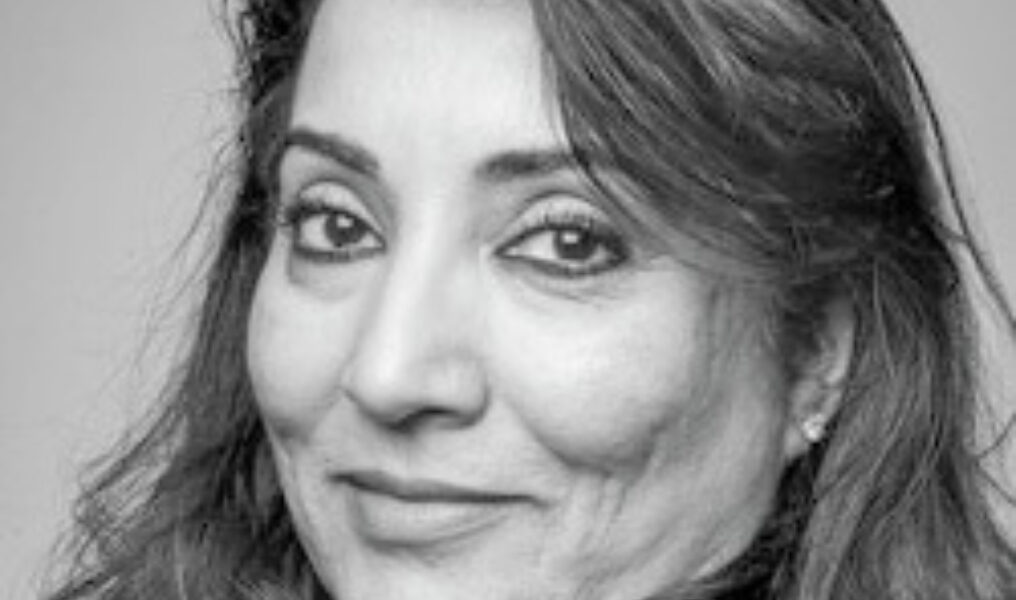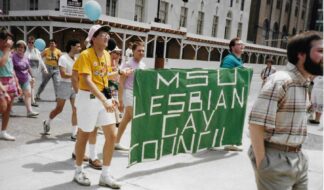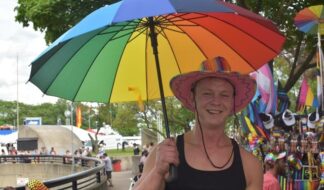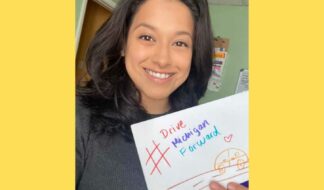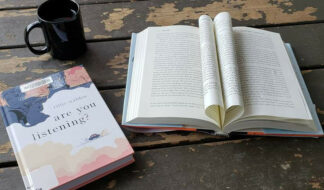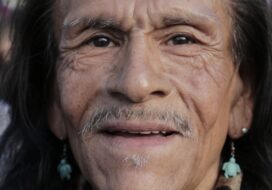
Dr. Farha Abbasi came to the U.S. in 2000 to escape the growing radicalism and political chaos in Pakistan. While she was a medical doctor in her homeland, the U.S. required her to re-certify under U.S. laws and in the process she discovered psychiatry. In January of 2009, Dr. Abbasi was awarded the American Psychiatric Association SAMSHA Minority Fellowship. She used the grant money to create awareness about cultural competency, to redefine it as not just tolerance for others but rather acceptance. Her areas of interest are cultural psychiatry and teaching medical students how to provide culturally appropriate care to Muslim patients. She works directly with the Muslim American community to encourage integration rather than isolation from main stream society. Dr. Abbasi is a professor and clinician at Michigan State University. As a leading voice in the Muslim community specializing in mental health, she is trying to create a safe place for LGBTQ youth in the community.
You came here after winning a visa in a lottery. But you were originally reluctant to move to the U.S. Why did that change?
The thing that was really scary was when people you knew were being randomly kidnapped or killed or kids being kidnapped and held for ransom. All that. The values in the country started changing. Women had to cover their head before coming out of the house. You saw the TV channels were propagating a militant kind of religion. We were not comfortable. That's not how I was raised…I had three girls. I didn't want them to be raised where they have to be segregated or have to have armed guards for their protection in order for them to do anything. I was raised in a family where education was very important. Never in my house was I told, "You are a girl. You cannot do it." The only time I think my father said 'no' to me was when I really wanted to run the family owned newspaper and he said, 'No, I have to pass it onto a son. That's how the country works. You won't be able to handle (it).' Now things are changed. There are a lot of females running their own newspapers, but when I was growing up they wouldn't let me go into journalism as a career, medicine was considered a far safer choice.
What role do you think that experience of seeing the religious extremism taking over the community that you grew up in? What role does that play in informing that view of mental health?
I always say faith is like a knife. If in a surgeon's hand, it can be used to save lives. If in the wrong hands, it can be used to take life, right? That's why I think it became really important for me because I'm a very religious person. I'm a practicing Muslim, but I am not righteous, thinking I am the only right person around. I believe that spirituality, religiosity, or whatever you practice, is a very important part of your resilience…We cannot have policies or have treatments where we are not taking that into context. At the same time, I also believe that in religion there is no room for intolerance. Religion should not be used as a war weapon or a political jargon. And if we are going to bring up statistics Muslims that are more religious and therefore more knowledgeable on the topic of Islam are far less likely to have radical views, thus I think we need to look at factors beyond religion to understand extremism.
You talk about religion not being intolerant. But Islam has often times been painted as being incredibly anti-LGBTQ.
One thing is the belief, the faith, and ideology and the other thing is the people who practice it. That impacts the perception of the religion. As far as LGBT people are concerned, it's not Islam only, overarching systems and culture affect how every religion is practiced, we see that with groups such as the Westboro Baptist Church. There are approximately 1.6 billion Muslims in the world, all from different countries, speaking different languages with different values. Often times these values are based on culture more than religion, but that's diving into a different conversation. Although I know there are Muslims who identify as more "conservative" are hold certain views, I also know Muslims who are inclusive and intersectional. In fact there are groups such as Muslims for progressive values and Muslim Alliance for Sexual and Gender Diversity, who are doing incredible work. Additionally, I think it is reductive to paint these two marginalized groups at odds when they in fact may overlap.
What role has patriarchy played in this interpretation against LGBTQ people?
Historically we have seen that in all the major religions, there is a deliberate patriarchal interpretation of the text. Islam clearly talks about the equality between men and women, but patriarchy exists in the cultures where it is practiced. Patriarchy functions to oppress women and also anyone who does not fall into the gender binary, or identifies as straight, I think anti-LGBT sentiment in any population has everything to with this. My work with LGBT youth has been focused on creating a safe space. I know that these kids have high vulnerability to harm themselves, they suffer in silence and die without seeking help. That's the first thing I discussed after the Orlando shooting, that this was not a hate crime based on religion as how many kids at that night club might have been Muslim too? Nobody talks about that. It's just unfortunate that we have created this idea, like being Muslim means something different, some one with horns or a tail and you will know one just by looking at them. You might be surprised to know, your physician, teacher, fire fighter or a friendly neighbor might be one.
Tell me something about Islam that western society might not be familiar with?
Islam actually is inherently feminist, which comes as a surprise because (it has) not necessarily been practiced that way. If you have really read the Koran…the first person who validated the prophecy of Muhammad (PBUH) was his wife. She was the first Muslim. Female infanticide was common in many regions before Islam, but the religion was introduced and prohibited this practice. There are Quranic verses that uphold women's rights of identity, entrepreneurship, right to vote and the right to divorce. It is very empowering to me. Unfortunately, most of the cultures that Islam came into were patriarchal societies which could not do justice to the true spirit of Islam.
How does a Trump presidency affect your ability to create safe spaces for young people?
In order to feel safe, you need to feel secure and in order to feel secure you need to be able to trust, for trust to foster, you need a sense of fairness and for justice to prevail. All these have been the major causalities of this election process, we continue to live in unpredictability waiting for the other shoe to drop, where do u start to trust or feel secure or safe…
What are some of the changes you have witnessed in your capacity of observation in the Muslin youth community, specifically amongst LGBTQ youth?
We have seen a tremendous increase in the vulnerabilities of these populations, more depression, anxiety, insomnia and post traumatic stress disorder. The rampant increase in bullying, violence and aggression all contributing factors to the worsening of their mental health challenges. They are afraid to come out and seek care. The stigma and shame perpetuates the conspiracy of secrecy. We absolutely need to break the silence and create safe places for our youth. LGBT Muslims face even more challenges because they are being ostracized on one hand for identifying as LGBT, harassed for being Muslim or both , because people don't realize that LGBT Muslims exist. They exist and they matter.
